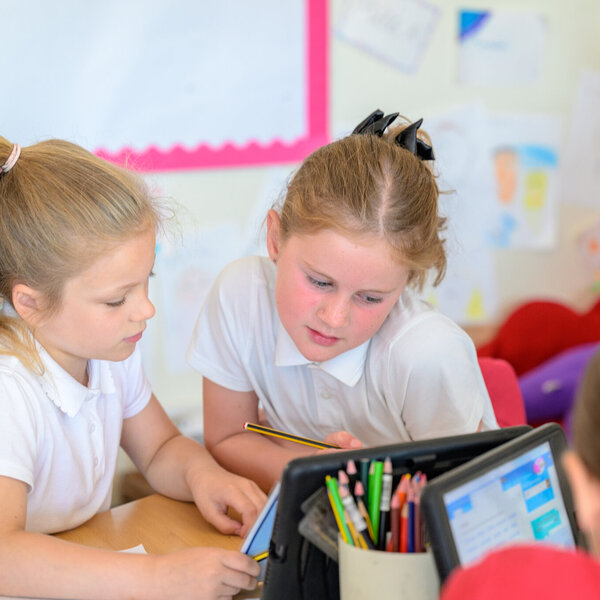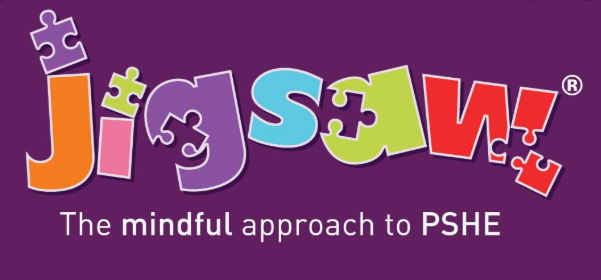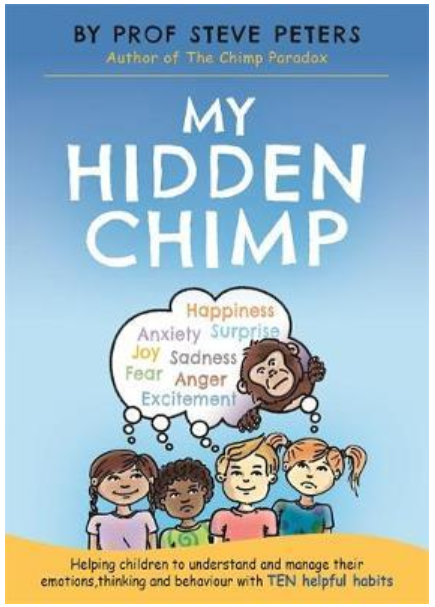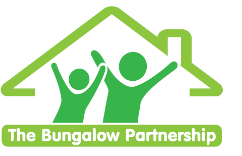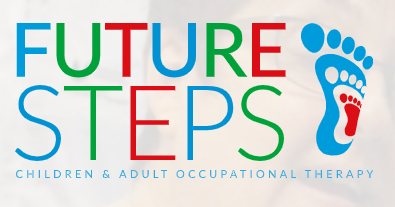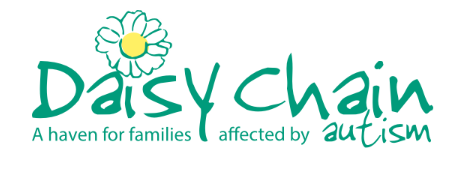Mental health and well-being at Harrow Gate Primary
We aim to promote positive mental health and wellbeing for our whole school community (children, staff, parents and carers), and recognise how important mental health and emotional wellbeing is to our lives in just the same way as physical health. We recognise that children’s mental health is a crucial factor in their overall wellbeing and can affect their learning and achievement. All children go through ups and downs during their school career and some face significant life events.
The Department for Education (DfE) recognises that: “in order to help their children succeed; schools have a role to play in supporting them to be resilient and mentally healthy”. Schools can be a place for children and young people to experience a nurturing and supportive environment that has the potential to develop self-esteem and give positive experiences for overcoming adversity and building resilience. For some, school will be a place of respite from difficult home lives and offer positive role models and relationships, which are critical in promoting children’s wellbeing and can help create a sense of belonging and community.
Our role in school is to ensure that children are able to manage times of change and stress, and that they are supported to reach their potential or access help when they need it. We also have a role to ensure that children learn about what they can do to maintain positive mental health, what affects their mental health, how they can help reduce the stigma surrounding mental health issues, and where they can go if they need help and support.
Our aim is to help develop the protective factors which build resilience to mental health problems and to be a school where:
* All children are valued.
* Children have a sense of belonging and feel safe.
* Children feel able to talk openly with trusted adults about their problems without feeling any stigma.
*Positive mental health is promoted and valued.
* Bullying is not tolerated.
At Harrow Gate Primary we are a committed to supporting the emotional health and wellbeing of our pupils, families and staff. There is a team of adults who are available to all children, families and each other at all times. Lead by the SENCO there is a Positive Mental Heath Officer who works closely with individuals, groups and whole classes. The Education Welfare Officer guides and supports families in and out of school
We offer different levels of support:
- Universal support to meet the needs of all our pupils through our overall ethos and wider curriculum. for example, our school values of Achievement , Resilience and Trust for all
- Additional outside agency support for those who have short term need and those who may have been made vulnerable by life experiences such as bereavement.
- Targeted in school support for pupils that need differentiated support and resources or specific targeted interventions such as; key adults, team around the child, POM interventions (POM explained later), lead staff members.
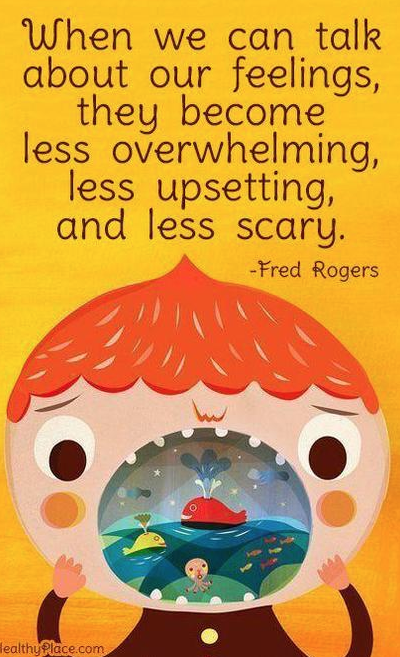

Universal support offer
At Harrow Gate Primary Academy all children receives the following:
A.R.T. – At Harrow Gate Primary Academy we have 3 core values – We call this “The ART of Harrow Gate.”
Achievement: Children meet the challenge and high expectations in learning through dynamic engagement.
Resilience: Children are courageous and passionate in their approach to learning, which fosters self-belief and pride.
Trust: The Harrow Gate family work as a team with honesty, respect, loyalty and effective communication to ensure success for all.
These three values are promoted and referred to throughout the whole of the school. The belief that we are only able to achieve our true potential when we have resilience and trust is fundamental to all that we do at Harrow Gate and it is the basis of our whole behaviours system.
Jigsaw PSHE –Jigsaw PSHE is a comprehensive and completely original Scheme of Work for the whole Primary School from Years F1 and 2 through to Year 6. It brings together PSHE Education, emotional literacy, social skills and spiritual development in a comprehensive scheme of learning. All children take part in a weekly Jigsaw PSHE lesson. (see the PSHE/SMSC page on the website for more detail)
Chimp Paradox Lessons – our Positive Mental Health Officer delivers a succession of lessons to year4 -6 based on the book “My Hidden Chimp by Prof Steve Peters.” The book is a simplified version on his award winning book the Chimp Paradox, specifically written to be used with children. The lessons are designed to help children to understand and manage their emotions, thinking and behaviour with TEN helpful habits.
Mindfulness in Class – Mindfulness in Class is used throughout the day to teach children strategies to self-sooth and calm themselves when they feel strong emotions and to promote a readiness for learning. Strategies including using: visualisations, giving yourself a hug, box breathing, body scans.
Peer Massage – peer massage is a 15 minute massage routine used in school to promote the well-being of children, as nurturing touch is a basic need and can help children develop into healthy, well-balanced young people. It is proven to raise levels of concentration, increase children’s confidence and self-esteem, reduce bullying and aggression, increase cooperation in the classroom, improve sleep in the home and help raise academic achievement.
P4C (Philosophy for Children) – Class partake in fortnightly P4C sessions with a wide-ranging focus but often they are mental and health and well-being related. The sessions increase children’s thinking and communication skills as well as boost self-esteem. www.philosophy4children.co.uk
Eco Club- All children have the opportunity to be part of our Eco Club. There is wide spread evidence that highlights the benefits to our mental health and well being when engaging in environmentally friendly activities. When we contribute to our communities and the planet, we become part of something bigger than ourselves. It instills a sense of worth, and it gives people something to be passionate about, something to talk about with others. The Eco Club encourages children to feel connected and helps us to put our fears and worries into perspective.
Thrive- Once a term there is a whole school, class based online assessment carried out. This assessment is then used to inform a whole class action plan to address any common highlighted social emotional needs of the whole group. The action plan give strategies and suggested activities for the class to work on during designated Thrive time as well as linking in throughout the curriculum.
Through the assessment process, children who are highlighted with significant gaps in their social and emotional development are referred to the school Thrive practitioner for more intensive Thrive sessions with an individualised focus.
Additional Outside Agency Support
Applied Psychology – School have a service level agreement (SLA) with Applied Psychology. The SENCO directs the work of the Educational Psychologist working in school through agreeing referrals with parents for their child to access the service. One of the many roles of the EP is to support and advice school and parents in ways to help children with mental health and well-being concerns. The EP could also request the consent of parents to refer their child on to other agencies where deemed necessary.
The Bungalow Partnership – The Bungalow Partnership provide a therapeutic support for children and their families across the Tees Valley. When school feel it is necessary and appropriate, they will refer to and fund a block of therapeutic input. The therapy usually takes place in school and lasts for 6 to 12 weeks. For further information about the service go to www.bungalowpartnership.co.uk
The Redhill Family Hub – School work closely with the Family Hub and often signpost parents to the many services available to support a wide range of needs: SEND workshops, behaviour support, sleep workshops, mindfulness sessions, youth clubs. For more information in the services available ring 01642 528914

Alliance Mental Health Support Team - School have access to the team to support Low Level mental health needs. This service is used to address early signs of mental health concerns. Parents can contact the service themselves to discuss their concerns and make referrals. School can (with parent consent) make referrals based on concerns that they have. https://www.alliancepsychology.com/young-people/support-request/
CAMHS Stockton – School work in partnership with parents and other professionals to make appropriate CAMHS referrals for children who exhibit any mental health difficulties including ADHD, ASD, Attachment difficulties, Anxiety. School then works in partnership with CAMHS and parents to support assessment and providing the recommended support in school for individual children. For further information about the service go to www.tewv.nhs.uk
Future Steps – Future Steps is a specialist Occupational Therapy service. The school SENCO would refer to and fund this service in special circumstances, for more in depth assessment around sensory processing difficulties and complex trauma. For further information then go to www.futurestepsot.co.uk
Daisy Chain – School work with and refer to Daisy Chain to support children with a diagnosis of ASD and the mental health difficulties, which can develop alongside the condition. For further information go to www.daisychainproject.co.uk
Targeted in school Support
At Harrow Gate, we believe that strong, supportive relationships between all members of a school (staff, children and parents/carers) are fundamental. We recognise that in order to truly support the holistic develop of all of our pupils, but especially children recognised as having difficulties with their mental health and well-being, that we need to invest in developing trusted relationships. Children are very astute and quickly recognise when the adults have true care and investment in supporting their needs.
“The most important assessments that take place in any school building are seen by no one. They take place inside the heads of students, all day long ... these internal assessments govern how much they care, how hard they work, and how much they learn” - Ron Berger, 2011
In response to this, ALL staff in school ensure they always make time to support the needs of child and invest in building increased resilience and in supporting the development of regulation strategies whenever it is necessary.
In addition, school promote an “open door” policy to parents to provide support in helping them help their children in a range of different ways.
Peace of Mind:
A number of years ago, Harrow Gate Primary identified the need for an “in-house” targeted provision to support the increasing number of children, who were recognised as having mental health and well-being needs. Through an ever-evolving journey, Harrow Gate now have POM in school (Peace of Mind), led by the Positive Mental Health Officer, Mrs Jackson. This is a provision in school, which supports building resilience and strategies to empower children to recognise and managing their own emotional regulation. Please see the POM website page for more detailed information.
Attachment and Trauma Support in school
Both the SENCO and PMHO completed the in depth training on how to support children who have attachment difficulties or who have experienced trauma. Please see the Attachment and Trauma website page for more detailed information.
Thrive
Both the SENCO and PMHO are Thrive Practitioner. Children are referred to by class teachers following whole class termly screenings, when children are identified as having significant gaps in their social and emotional development. Alternatively, teachers can requests an individual assessment based on their concerns. See the Thrive tab for further detail of the Thrive approach.
Other targeted emotional support
Other types of emotional support available are:
Targeted Lunch Clubs – some children find play and lunchtimes overwhelming. This quieter and more structured social opportunity support children who find these time challenging. The clubs available are ever evolving and changing but currently we have Uno Club, Chess Club, Lego Club and Card Club. The adult in charge can scaffold and model appropriate social interactions as and when required.
Social Skills Groups – The SENCO identifies necessary social skills groups based on her continued review of needs across school. The groups are planned to address specific difficulties such as social interaction, social communication, recognising and understanding social cues, developing positive peer relationships. School use a range of resources to plan these sessions.
Mental Health and Wellbeing Policy
What is Thrive?
Thrive is a therapeutic approach to help support children with their emotional and social development.
The Thrive approach offers practical strategies and techniques and is built around online assessments which identify children’s emotional development and provides action plans for their individual, group or whole class needs.
Research has shown that how we behave is linked to how we feel and our emotions are linked to how we learn. By teaching children to recognise and notice these feelings and emotions it can help with their development and learning.
Children sometimes need some extra support with their emotional growth and this can be temporary or over a longer period of time.
Thrive promotes their emotional and social growth by building positive relationships between a child and their peers and helps them explore and understand their feelings through various activities.
Why might my child attend a Thrive session?
Many children experience difficulties during their time at school. These may include:
-
Difficulties with friendships.
-
Getting into trouble at playtime.
-
Finding it hard to settle in the classroom.
-
Finding it difficult to manage their strong feelings.
-
Not knowing who to turn to when feelings are too big to manage on their own.
These situations can lead to many different feelings which may seem overwhelming at times. They might include: anger, frustration, sadness, loneliness, confusion or anxiety.
All these feelings are very normal and happen to a lot of children. The Thrive sessions are to help children learn to manage their feelings and teach them strategies that will help promote their learning at school.
What will happen in a Thrive session?
The session may be on an individual basis or as part of a small group of children. During each session there will be an activity which may include:
-
Story telling
-
Circle games
-
Arts and crafts
-
Sand play
-
Movement and relaxation
-
Hand and foot massage
-
Cooking and preparing food
-
Role play and puppet work
-
Games
More information
For more information about the Thrive approach see the website: www.thriveapproach.co.uk or contact the school office to speak to Mrs Jackson (Positive Mental Health Officer) or Mrs Holloway(Vice Principal and SENDCO), who are both Thrive Practitioners in school.
Thrive
What is attachment?
Attachment is an emotional connection that is developed between a parent/caregiver and a child, and this bond is crucial in a child’s development. A strong attachment is called a secure attachment. The secure attachment is not just founded on the quality of care or parental love, but includes the nonverbal emotional communication developed within the relationship. This does not mean that you are required to be a perfect parent. Sometimes we know that these attachments can be disrupted through a range of difficult circumstances, which can lead to attachment difficulties and trauma known as insecure attachments.
What can disrupt attachment and lead to trauma?
Attachments between a child and their main caregiver can be disrupted by many factors:
- Quality of the relationship from birth
- Seperation or divorce
- Illness of child or parent
- Bereavement
- Mental health issues
- Parent being unavailable
- Physical, mental or emotional abuse towards either parent or child
- Learning needs
- Substance abuse
- Parent in jail
How does insecure attachment affect a child?
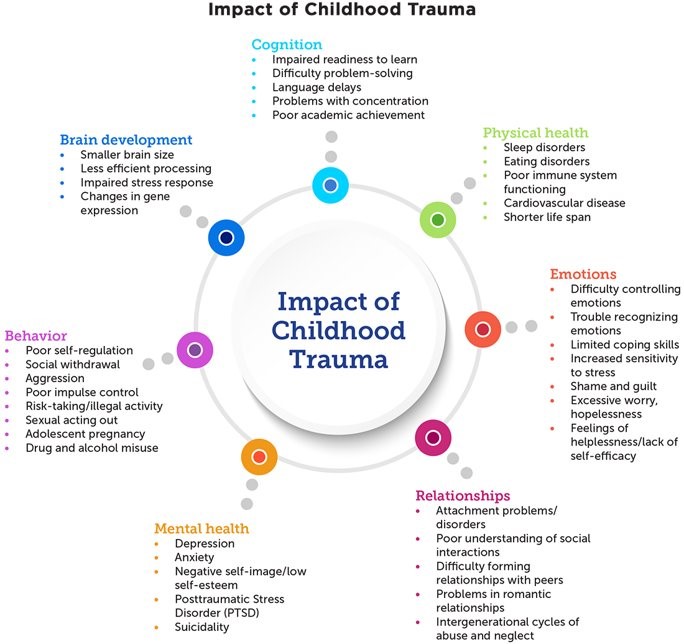
How do Harrow Gate Primary support children who have experienced attachment and trauma difficulties?
When a pupil or student has experienced relational traumas and losses it is important to know their story, their stress triggers, their resilience factors and their calmers so that we can all provide the consistent care needed, in order for them to recover well. We know that attending to the attachment style of a pupil, makes them feel safe, secure and stable, and this will enable them to engage fully in their learning and embrace the whole school experience.
At Harrow Gate Primary Academy, we have a system to build up a detailed picture of the child’s life from birth to the present through discussion with the parents, staff in school who know the child well, observations of the child and assessments. Through this process, we will be able to identify a range of known tools and strategies that will support both regulation and relationship. The aim is to support the child or young person to function well at home, school and out and about in community.
Interventions and Strategies used to support the children
Team Pupil Approach: include IDP
Theraplay®:
Theraplay® informed practice is an attachment focused way of being aimed at building self-esteem, trust, emotional resilience and strengthening emotional connection.
This can be used with all ages!
It facilitates joyful and playful interactions between caregiver/key adult and child or young person based on four essential dimensions found in healthy caregiver-child relationships: Structure, Engagement, Nurture, Challenge. Through a variety of fun, engaging, developmentally challenging and nurturing games and activities the therapist supports the caregiver to regulate the child or young person’s behaviour and communicate safety, security, warmth and delight. This type of attachment strengthening play and interaction helps the child or young person to feel safe in the world, experience relationships as rewarding and comforting, and come to view themselves as worthy and loveable.
POM:
A number of years ago, Harrow Gate Primary identified the need for an “in-house” targeted provision to support the increasing number of children, who were recognised as having mental health and well-being needs. Through an ever-evolving journey, Harrow Gate now have POM in school (Peace of Mind), led by the Positive Mental Health Officer, Mrs Jackson. This is a provision in school, which supports building resilience and strategies to empower children to recognise and managing their own emotional regulation. Please see the POM website page for more detailed information.
Therapeutic Massage:
School employ a therapeutic masseur for one day a week as there is much research that identifies the connection between touch and improving emotional health and well-being. Massage is an important part of the POM provision and must be done with care in order to keep children safe. Massage is offered in conjunction with the full POM programme to assist with relaxation and reduce tension. It can also be a stand alone weekly intervention used for identified children.
Sensory Attachment Intervention (SAI):
Sensory Attachment Intervention (SAI) is an approach to support children experienced trauma. Traumatic experiences impact on the way we cope with stress throughout life and traumatised children tend to be in a persistent state of fear. This stops them being able to filtering out "unimportant" sensory experiences such as background sights and sounds. It is often the case that children are very defensive to sensory input, as the sensory systems have become alert to the possibility of danger.
School recognise the significant impact this has on the children's ability to cope in the school environment and the wider world. Therefore, both the SENCO and the PMHO have completed the SAI Level 2 training which has given them a more in depth knowledge of sensory attachment intervention and the ways to support and help children manage these difficulties. In order to support children having these overwhelming sensory experiences, the SENCO and PMHO would assess the needs of the child and plan a sensory diet based on their findings. For further information about SAI please go to the SAI website https://www.sensoryattachmentintervention.com/
Calm box:
A Calm Box can be introduce to highlighted children as a way to encourage them to learn ways to cope and to give them strategies to enable them to be the boss of their own emotions. The idea of a Calm Box is that when a child is feeling overwhelming emotions, they are encouraged to take some time and use the tools within the box to self-regulate and calm down effectively.
Initial supports available:
There are a range of self-referrals that can be made by parents, when you have concern about your child's mental health and wellbeing as well as workshops and training opportunities to support you in understanding and managing a range of different needs.
- CAMHS offer a variety of workshops around a range of different subjects such as Sleep workshops, Understanding eating disorders etc. Click the link for more information. Training for parents and carers of children under 18 in Teesside - Tees Esk and Wear Valley NHS Foundation Trust (tewv.nhs.uk)
- Parents can access information about the family hubs and their offers of support by following Stockton-on-Tees Family Hubs on Facebook-https://www.facebook.com/SOTfamilyhubs. This advertises the activities and courses that they have available this could include Relax Kids - which is mindful and calming activities, Sleep workshops, Daisy Chain Coffee Morning, Physiotherapy drop in clinic, The Incredible Years parenting support etc. Some information is available online https://www.stockton.gov.uk/article/5813/Family-Hubs, however the most up to date information is on Facebook.
- Parents can self-refer to Stockton-on-Tees Multi-Agency Response Team (SMART). They can offer support around behaviour, family relationships, problems at school, budgets or debt, children's routines and other difficulties you are experiencing. Find out more by visiting Help and support services - Stockton-on-Tees Borough Council or by phoning 01642 528808.
- There is an very active Parent Carer forum which offers support to parents https://stocktonparentcarerforum.co.uk/ phone: 079852456688 email: info@stocktonparentcarerforum.co.uk
Higher level of support when initial supports have not led to improvements
CAMHS have broken down their offer into two sections called the "Getting Help team" and the "Getting More Help Team".
Getting Help Team supports lower levels of mental health such as low mood, low levels of anxiety. This can included an offer of group work.
Getting More Help Team supports higher levels of need including children exhibiting risk taking behaviours and those experiencing suicidal thoughts.
Parents can access this support through the new single point of access telephone number from Tees, Esk and Wear Valleys (TEWV) NHS Foundation Trust. Children, adults and older people living in the local area can access Tees, Esk and Wear Valleys NHS Foundation Trust crisis services by calling Tel. 0300 0200317.Those with learning disabilities and/or autism can also access emergency mental health support using this number. The phone-line is open 24 hours a day, seven days a week, offering callers a series of options which will divert them to the appropriate local service.
Parents can refer directly to the Mental Health Support Team (linked to Alliance Psychological Services) for support around a range of different needs. https://www.alliancepsychology.com email: cypfamilies@alliancepsychology.com
Contact your GP for further support
Contact school for further support: The class teacher, Karen Gibbon - Educational Welfare Officer, Ema Jackson - Positive Mental Health Officer, Gemma Holloway - SENCO and Inclusion Lead
Useful websites who can offer support:
Middlesbrough and Stockton Mind
Forget Me Not Bereavement Service
Useful Apps
Overcome panic attacks and anxiety the moment they strike with Rootd’s guided process for immediate relief.
Mindful Gnats is an app designed to teach young people simple mindfulness and relaxation skills.
Slumber is a collection of ultra-relaxing sleep-inducing stories and meditations designed to help you fall asleep quickly
 A happiness journey to help you increase your happiness and positivity
A happiness journey to help you increase your happiness and positivity
A mindfulness app
